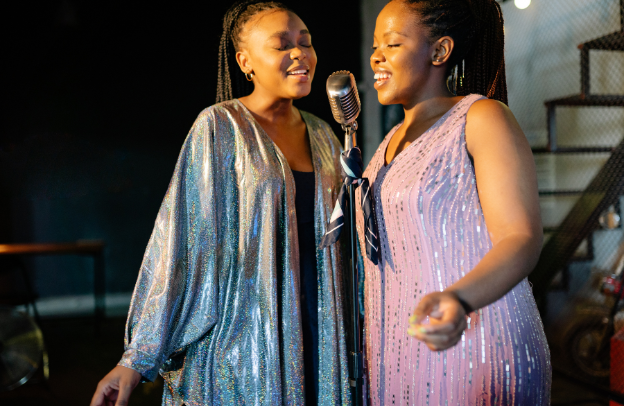Harnessing the Power of African Diaspora Heritage for Positive Change

Do you want to understand how to harness the power of African Diaspora heritage for positive change? You are in the right place. Today, across the world globalization has become the norm and what used to be tight borders now seem quite blurring with each passing day, raising the concept of heritage into a profound significance. Nowhere is this more evident than among the African diaspora, a vast and diverse network of people whose ancestors in the majority were forcibly displaced from their homeland and scattered across the globe.
Want to learn more about storytelling? Start by downloading the first chapter of The Storytelling Mastery.
How do you leverage that heritage for positive change? That is the central point behind this article and the topic of today’s conversation at the Diaspora Storytelling Series. Make sure to join us and also invite your friends to the conversation. I would like us to start by examining the rich history of African Diaspora Heritage. That is a good starting point.
The Rich History of African Diaspora Heritage
The story of the African diaspora is one of resilience, adaptation, and survival against all odds. From the transatlantic slave trade to the waves of migration driven by economic, political, and social factors, the journey of African-descended people is marked by both tragedy and triumph.
“West Africa and the African diaspora share an intertwined history. From the earliest moments of the development of the diaspora, West Africans and members of the African diaspora have sought ways to connect to each other.” That is the submission of Bayo Holsey on his paper: West Africa and the African Diaspora.
He added that this was done through the “exploration of cultural links, travel back and forth between West Africa and the diaspora, and the development of shared philosophical and political movements.”
Celebrating African Diaspora Heritage: An Insightful Conversation with Loretta Green-Williams
Despite facing centuries of oppression, exploitation, and marginalization, members of the African diaspora have persevered, preserving their cultural heritage and forging new identities in the process.
Amidst these challenges and obstacles that continue to confront the African diaspora, there lies a wealth of untapped potential waiting to be explored. By harnessing the power of their heritage, members of the diaspora have the opportunity to effect positive change in their own lives and communities.
That is not all, they can expand their reach to a wider world. From economic empowerment to cultural diplomacy, advocacy to activism, the possibilities are endless. That is what we are talking about. But how much do you truly understand the African diaspora heritage? Let’s spend some time there.
Understanding the African Diaspora Heritage
To understand the complexities of the African diaspora, one must first delve into its history. The transatlantic slave trade, which forcibly transported millions of Africans to the Americas, the Caribbean, and beyond, represents one of the darkest chapters in human history.
Yet, from this horrific experience emerged a global community bound together by a shared history and heritage. In addition to the transatlantic slave trade, subsequent waves of migration, including the Great Migration of African Americans in the early 20th century and the more recent influx of African immigrants to Europe and North America, have further enriched the history of the African diaspora.
One of the defining features of the African diaspora is its incredible diversity. From the languages spoken to the religions practiced, from the food eaten to the music played, the cultures of the African diaspora are as varied as the people themselves.
Whether it’s the rhythmic beats of Afrobeat music, the vibrant colors of African fashion, or the rich flavors of soul food cuisine, the cultural contributions of the African diaspora are undeniable and this continues to influence western society as well.
See also Leveraging The Opportunities In the Creative Economy By African Diasporans – Dr Chetachi Egwu
Despite facing centuries of oppression and discrimination, members of the African diaspora have demonstrated remarkable resilience and strength. From the abolitionists who fought to end the slave trade to the civil rights activists who marched for equality, the history of the African diaspora is replete with examples of individuals and communities rising up against injustice and oppression.
This legacy of resilience continues to inspire future generations to stand up and make their voices heard.
Yes, the voices of people in the African diaspora communities need to be heard unapologetically. I just needed to repeat that. With that out of the way, let’s consider one of the best parts of this article, “Harnessing Heritage for Social Impact”
Learn to Harness Diaspora Heritage for Social Impact
One of the most powerful ways in which members of the African diaspora can harness their heritage for positive change is through economic empowerment.
Whether it’s through entrepreneurship, investment, or job creation, the economic potential of the African diaspora is vast and quite rightly, untapped. By leveraging their skills, networks, and resources, members of the diaspora can not only improve their own economic prospects but also contribute to the development of their communities and their countries of origin.
In an increasingly interconnected world, cultural diplomacy remains a powerful tool for promoting understanding and cooperation between nations and peoples.
Think about it. The cultural heritage of the African diaspora can serve as a bridge between different cultures and communities, fostering mutual respect, appreciation, and unity. From cultural exchanges and festivals to educational programs and artistic collaborations, there are countless ways in which the African diaspora can engage in cultural diplomacy and promote positive change on a global scale.
Perhaps the most urgent challenge facing the African diaspora today is the ongoing struggle for justice and equity.
This is true whether you are looking at the United States with its abundant evidence of historical injustice to the United Kingdom, France to Germany, there is a continuous cry for fairness in the treatment of people of African descent in euro-western society even as we speak.
We recently published a series of articles, seven of them detailing these injustices, from academia and Western pseudoscientists, religious leaders, and politicians who have masterminded their dangerous racial agendas. Their ideas led to genocides and centuries of inhumane treatment against the African people. Like cancers, these ideas are still present today across Western societies.
Here is a list of all the articles in the series – Racism And Slavery: Reflection On Human Madness by Stefano Anselmo:
- Racism And Slavery: Reflection On Human Madness by Stefano Anselmo
- What Racism Requires: Religion And Science Were To Go Hand In Hand
- Racism And Slavery: How The Hamitic Theory Began To Crumble
- In America Before Columbus: Exploring European Racist Stereotypes
- Racism And Slavery: African Crisis Is An Invention Of The West
- Our House Slaves: European Centuries Of Heritage
- Religious Endorsement Of Slavery As A Legitimized Business Both In Islam And Christianity
Wherever you look in the African diaspora, the ugly face of discrimination always shows up. From racial discrimination and police brutality to economic inequality and political disenfranchisement, members of the diaspora continue to face systemic barriers to full inclusion and participation in society.
However, by speaking out and organizing for change, the African diaspora has the power to effect meaningful and lasting transformation.
Whether it’s through grassroots organizing, advocacy campaigns, or political activism, members of the African diaspora must continue to lead the charge for more just and equitable living conditions in their society.
Strategies for Harnessing the African diaspora Potentials
As the future leaders and changemakers of tomorrow, young people represent a critical constituency within the African diaspora. By empowering youth leadership and engagement, we can ensure that the voices and perspectives of the next generation are heard and valued.
Whether it’s through mentorship programs, leadership training, or youth-led initiatives, investing in the empowerment of young people is essential to building a more inclusive, equitable, and sustainable future.
Education has long been recognized as a key driver of social and economic mobility, and members of the African diaspora are no exception.
By investing in education and skills development, we can unlock the full potential of the African diaspora and equip individuals with the knowledge, tools, and opportunities they need to succeed.
Whether it’s through scholarships, vocational training programs, or lifelong learning initiatives, investing in education is essential to building a brighter future for all.
Now, this is important: to harness the power of the African diaspora for positive change, it is essential to promote cultural exchange and collaboration between individuals, communities, and countries.
By celebrating our shared heritage and embracing our differences, we can foster mutual understanding, respect, and solidarity.
Whether it’s through cultural festivals, exchange programs, or artistic collaborations, promoting cultural exchange and collaboration is essential to building bridges between people and promoting positive change on a global scale.
See also The Power Of Oral Narration For African Diaspora – The African Diaspora Storytelling Series
Conclusion: A Call to Action
It needs to be pointed out that the African diaspora represents a vast and diverse network of people bound together by a shared history, heritage, and vision for the future.
By harnessing the power of their heritage, members of the diaspora have the opportunity to effect positive change in their own lives and communities, as well as in the wider world.
Yes, it is true that now more than ever, the world needs the leadership, creativity, and resilience of the African diaspora. By seizing opportunities for collective growth and transformation, we can overcome the challenges that lie ahead and build a more just, equitable, and sustainable world for future generations. Together, let us harness the power of African diaspora heritage for positive change.
Want to learn more about storytelling? Start by downloading the first chapter of The Storytelling Mastery.





